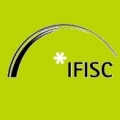George Kampis Abstract's Talk
The power of the phenotype
Darwin knew well that organisms form, to a great extent, each other's environment; he discussed it at length, for example, how migration tends to put species into "altered environmental conditions" that include biotic factors. Biotic factors usually act through direct, phenotype-to-phenotype interactions, the relevance of which has only recently been recognized via niche construction, phenotype plasticity, and epigenesis. I am reviewing the history of phenotype-based notions in evolution (along with some remarks on Darwin), and present a theory of the phenotype, based on the notion of rich or "fat” interactions. I show a minimalist, individual based simulation model, developed with W. de Back, where rich individual interactions can bring forth and maintain complex food webs, a modeling challenge formulated by Drossel, Kane and others, showing the relevance of the proper understanding of the phenotype in evolution and ecology. Analyzing the model, we find that many “ecological laws” (such as on species-area relationships, species abundance distributions, or weak links distribution) arise as emergent consequences in the system – suggesting that nothing else than “true” phenotype interactions may be required to obtain them.
Return


